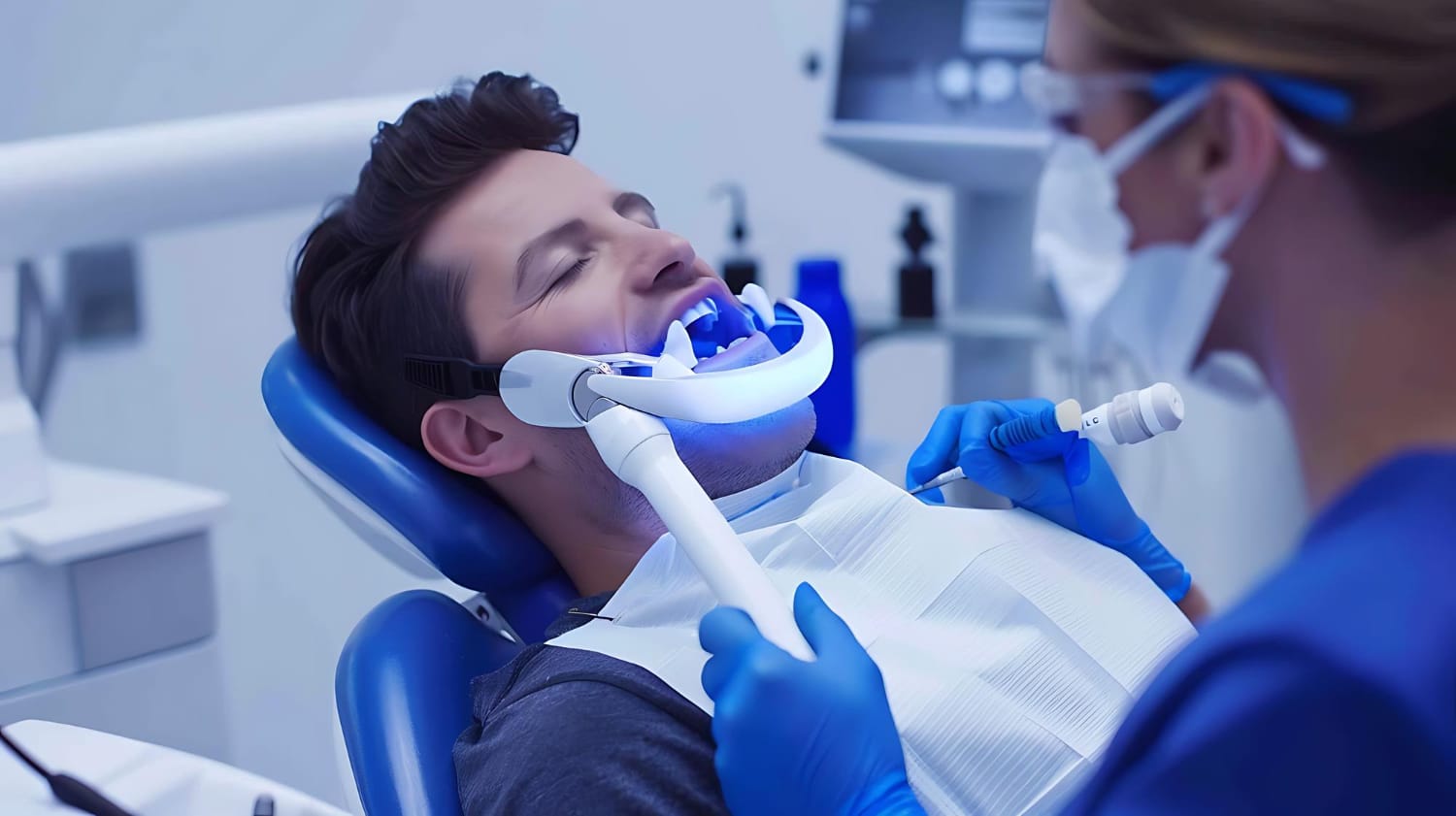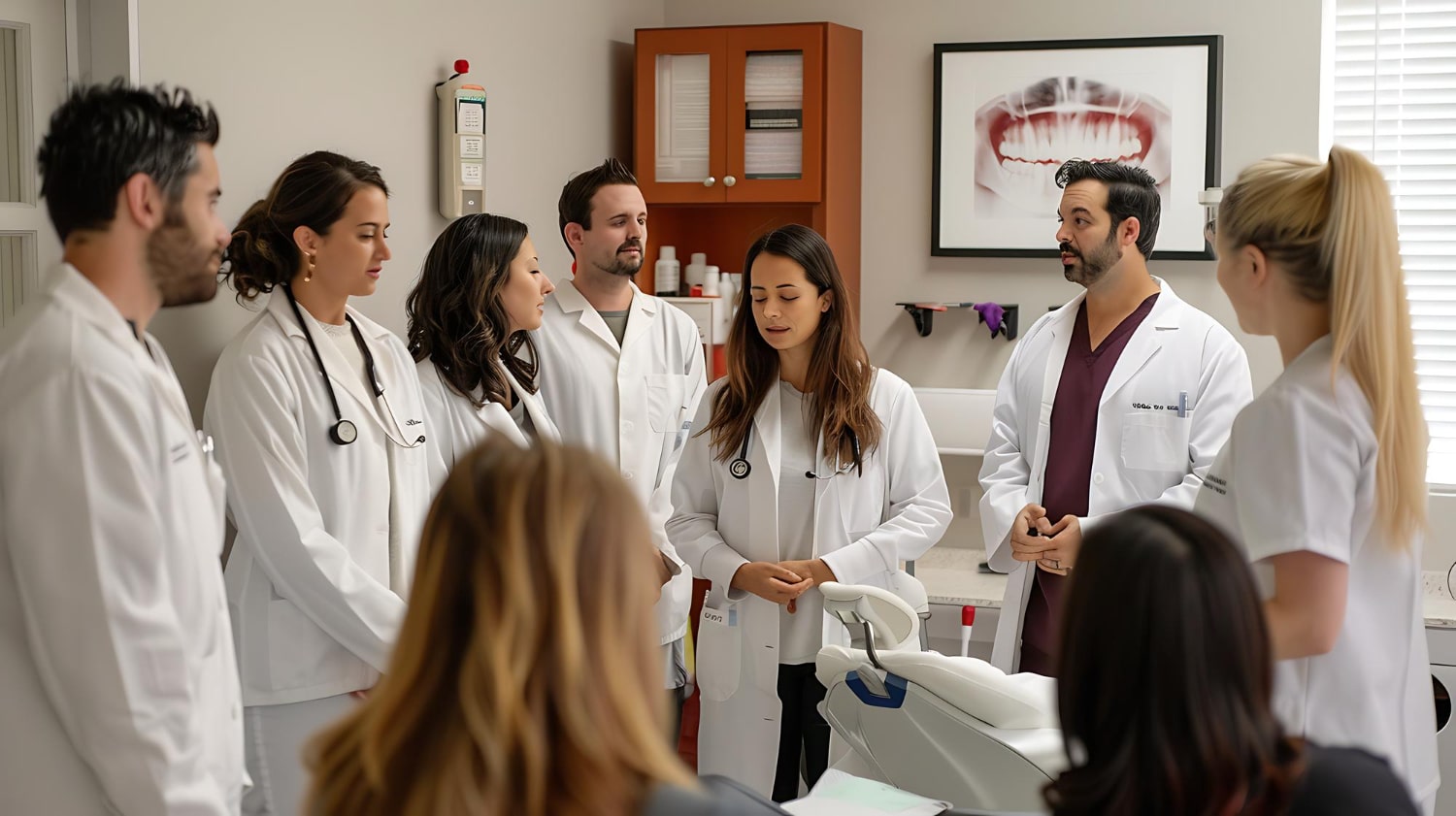Are you tired of dealing with chronic jaw pain that seems to have no end? Look no further, because the ultimate solution is here: TMJ replacement surgery. Say goodbye to the discomfort and limitations caused by temporomandibular joint (TMJ) disorders, and regain control over your life.
TMJ replacement surgery is a revolutionary procedure that effectively treats severe TMJ disorders, providing long-lasting relief from jaw pain, difficulty chewing, and other associated symptoms. By replacing the damaged joint with a prosthetic one, this surgery restores normal functionality to your jaw, allowing you to eat, speak, and live pain-free.
We understand the impact that chronic jaw pain can have on your quality of life. That’s why our team of experienced surgeons specializes in TMJ replacement surgery, utilizing the latest advancements in the field to provide superior results. With our compassionate care and precise surgical techniques, we ensure that you receive the highest standard of treatment.
Don’t let jaw pain control your life any longer. Unlock a future free from discomfort and regain your joy in eating, speaking, and smiling with TMJ replacement surgery. Contact us today to schedule a consultation and take the first step towards pain relief.
Understanding TMJ and Jaw Pain
The temporomandibular joint (TMJ) is the joint that connects your jaw to your skull. It allows for the movement required for daily activities such as speaking, eating, and swallowing. TMJ disorders can occur due to various reasons, including trauma, arthritis, or misalignment of the joint. When the TMJ is affected, it can lead to chronic jaw pain, difficulty in opening and closing the mouth, clicking or popping sounds, and even headaches and earaches.
Living with jaw pain can be incredibly challenging. Simple tasks like eating a meal or engaging in a conversation can become arduous and painful. The constant discomfort can also affect your emotional well-being, causing stress and frustration. If you have been experiencing persistent jaw pain, it is essential to consult a specialist who can diagnose and provide an appropriate treatment plan.
Traditional Treatments for TMJ and Their Limitations
Traditional treatments for TMJ disorders usually begin with conservative approaches such as pain medication, physical therapy, and lifestyle modifications. While these methods may provide temporary relief for some individuals, they often fail to address the underlying cause of the problem. In cases where conservative treatments are ineffective or the condition is severe, surgery may be recommended.
One of the commonly performed surgical procedures for TMJ disorders is arthroscopy. This minimally invasive procedure involves inserting a thin tube with a camera into the joint to visualize the area and make necessary repairs. While arthroscopy can be effective for certain TMJ conditions, it may not be suitable for severe cases or when the joint is extensively damaged.
Another surgical option is open-joint surgery, where the joint is accessed through a larger incision. This procedure allows for more extensive repairs or joint replacements. However, open-joint surgery is invasive, requiring a longer recovery period and potentially causing more discomfort.
Despite these traditional treatment options, many patients continue to suffer from persistent jaw pain and limited jaw function. That’s where TMJ replacement surgery comes in as a game-changing solution.

How TMJ Replacement Surgery Works
TMJ replacement surgery, also known as total joint replacement, is a surgical procedure that involves replacing the damaged TMJ with a prosthetic joint. This advanced surgical technique has shown great promise in providing long-term relief for patients with severe TMJ disorders.
The surgery begins with a comprehensive evaluation by a qualified oral and maxillofacial surgeon. The surgeon will assess your specific condition, taking into account factors such as the extent of damage, your overall health, and your individual needs. With this information, a customized treatment plan will be created to address your unique situation.
During the surgical procedure, the damaged joint is removed, and a prosthetic joint is carefully inserted. The prosthetic joint is usually made from a combination of high-quality materials, such as titanium and polyethylene, to mimic the natural movement and function of the TMJ. The surgery is performed under general anesthesia, ensuring your comfort throughout the procedure.
Once the prosthetic joint is in place, the surgeon will ensure that it fits accurately and functions correctly. The incisions are then closed, and specific post-operative instructions will be provided to aid in your recovery. It is important to follow these instructions closely to ensure optimal healing and long-term success.
Benefits of TMJ Replacement Surgery
TMJ replacement surgery offers numerous benefits for individuals suffering from severe TMJ disorders. Here are some of the key advantages of choosing this procedure:
- Long-lasting pain relief: TMJ replacement surgery targets the underlying cause of your jaw pain, providing long-lasting relief that other treatment options may not achieve. By replacing the damaged joint, this surgery eliminates the source of discomfort and allows you to regain normal jaw functionality.
- Improved jaw function: TMJ disorders can significantly impact your ability to eat, speak, and perform daily activities. With TMJ replacement surgery, you can restore normal jaw function, allowing you to enjoy your favorite foods, speak clearly, and engage in social interactions without pain or limitations.
- Enhanced quality of life: Chronic jaw pain can take a toll on your emotional well-being and overall quality of life. By eliminating jaw pain and restoring your ability to engage in daily activities, TMJ replacement surgery can significantly improve your overall quality of life. You can regain your confidence, enjoy social interactions, and focus on the things that matter to you.
- Customized treatment: TMJ replacement surgery is tailored to your specific needs and condition. The surgical approach and prosthetic joint used are customized to ensure the best possible outcome for your unique situation. This personalized treatment approach maximizes the chances of success and ensures optimal results.
Risks and Complications of TMJ Replacement Surgery
As with any surgical procedure, TMJ replacement surgery carries certain risks and potential complications. It is important to be aware of these possibilities and have an open discussion with your surgeon to address any concerns or questions you may have.
Some potential risks and complications associated with TMJ replacement surgery include:
- Infection: As with any surgical procedure, there is a risk of infection. However, with appropriate preoperative measures and postoperative care, the risk of infection can be minimized. Your surgeon will provide detailed instructions on how to care for the surgical site and reduce the chances of infection.
- Dislocation: In rare cases, the prosthetic joint may dislocate or move out of position. This can cause discomfort and may require additional surgical intervention to correct. Your surgeon will take precautions during the surgery to minimize the risk of dislocation.
- Nerve damage: The proximity of the TMJ to important nerves in the face and jaw region means there is a small risk of nerve damage during the surgical procedure. However, experienced surgeons take great care to minimize this risk and ensure the best possible outcome.
- Implant failure: While prosthetic joints used in TMJ replacement surgery are designed to be durable, there is a possibility of implant failure over time. This can require revision surgery to replace the prosthetic joint. Regular follow-up appointments with your surgeon can help identify any potential issues early on.
It is important to note that the risks and complications associated with TMJ replacement surgery are relatively rare. The vast majority of patients experience successful outcomes and significant improvement in their symptoms.

Recovery and Rehabilitation after TMJ Replacement Surgery
The recovery process after TMJ replacement surgery is crucial for achieving the best possible results. Your surgeon will provide specific post-operative instructions tailored to your needs. It is essential to follow these instructions diligently to ensure a smooth recovery.
Immediately after surgery, you may experience some swelling, bruising, and discomfort. Your surgeon will prescribe pain medication to manage any post-operative pain. Applying ice packs and following a soft food diet can help reduce swelling and promote healing.
In the initial days following surgery, it is important to get plenty of rest and avoid strenuous activities. Your surgeon may recommend specific jaw exercises or physical therapy to aid in the recovery process. These exercises will help strengthen the jaw muscles and restore normal jaw function.
As your recovery progresses, you will gradually introduce solid foods back into your diet. Your surgeon will provide guidance on the appropriate timeline for transitioning to a regular diet. It is important to be patient and follow the recommended guidelines to ensure proper healing.
Regular follow-up appointments with your surgeon are an essential part of the recovery process. These appointments allow your surgeon to monitor your progress, address any concerns, and make necessary adjustments to your treatment plan. By staying in close communication with your surgeon, you can ensure a successful recovery and long-term success.
Success Stories and Testimonials from Patients who Underwent TMJ Replacement Surgery
The success of TMJ replacement surgery is best reflected in the experiences and stories of patients who have undergone this life-changing procedure. Many individuals who have struggled with chronic jaw pain and limited jaw function have found immense relief and improved quality of life after TMJ replacement surgery.
John, a 45-year-old patient, had been suffering from severe TMJ pain for several years. He had tried various treatment options with little success. After consulting with a specialist and undergoing TMJ replacement surgery, John experienced a remarkable transformation. He regained full jaw function, could eat his favorite foods without discomfort, and felt a renewed sense of confidence in his daily life.
Similarly, Sarah, a 32-year-old professional, had been dealing with excruciating jaw pain that affected her ability to speak and eat. Traditional treatments had provided only temporary relief, leaving her frustrated and in constant discomfort. After opting for TMJ replacement surgery, Sarah’s pain disappeared, and she regained full functionality of her jaw. She describes the surgery as a life-changing experience that allowed her to reclaim her life.
These success stories and testimonials from patients who have undergone TMJ replacement surgery highlight the transformative impact of this procedure. By choosing TMJ replacement surgery, you too can join the ranks of individuals who have found freedom from jaw pain and regained control over their lives.
Finding the Right Surgeon for TMJ Replacement Surgery
Choosing the right surgeon for your TMJ replacement surgery is crucial for ensuring a successful outcome. Here are some factors to consider when selecting a surgeon:
- Experience: Look for a surgeon who specializes in TMJ replacement surgery and has extensive experience in performing the procedure. An experienced surgeon will have a deep understanding of the complexities of TMJ disorders and the surgical techniques required for optimal results.
- Credentials and qualifications: Ensure that the surgeon is board-certified and has received the necessary training and qualifications to perform TMJ replacement surgery. Look for affiliations with reputable professional organizations and a track record of successful surgeries.
- Patient reviews and testimonials: Read reviews and testimonials from previous patients to gain insight into the surgeon’s skill, bedside manner, and overall patient satisfaction. Positive feedback from patients who have undergone TMJ replacement surgery can be a good indicator of the surgeon’s expertise and the quality of care you can expect.
- Consultation process: Schedule a consultation with the surgeon to discuss your specific condition, treatment options, and expectations. This will allow you to assess their communication style, attentiveness, and ability to address your concerns. A surgeon who takes the time to understand your needs and provides clear and comprehensive information is essential for a successful surgical journey.

Conclusion: A Life Free from Jaw Pain with TMJ Replacement Surgery
Chronic jaw pain caused by TMJ disorders can significantly impact your quality of life, making even the simplest tasks a source of discomfort. However, with the revolutionary TMJ replacement surgery, you can bid farewell to jaw pain forever and regain control over your life.
TMJ replacement surgery offers a long-lasting solution that effectively treats severe TMJ disorders, providing relief from pain, improving jaw function, and enhancing overall quality of We specialize in TMJ replacement surgery, utilizing the latest advancements in the field to provide superior results. Our compassionate care and precise surgical techniques ensure that you receive the highest standard of treatment.
Don’t let jaw pain control your life any longer. Contact us today to schedule a consultation and take the first step towards a pain-free future filled with the joy of eating, speaking, and smiling.






